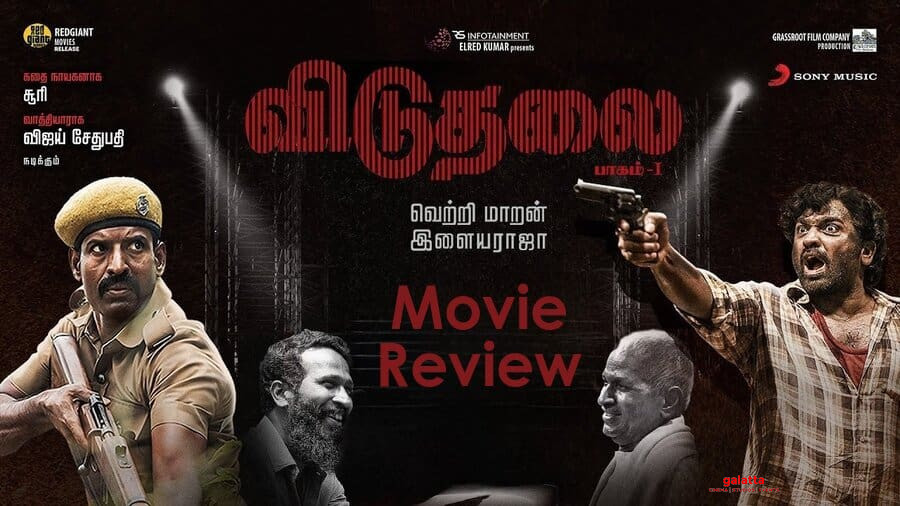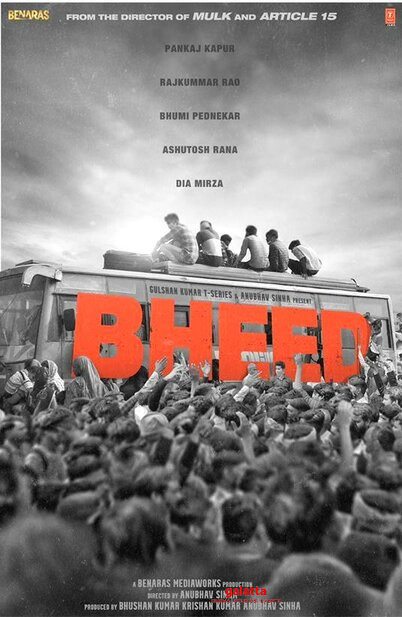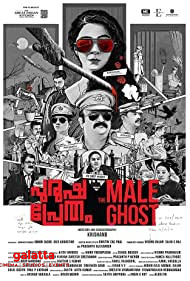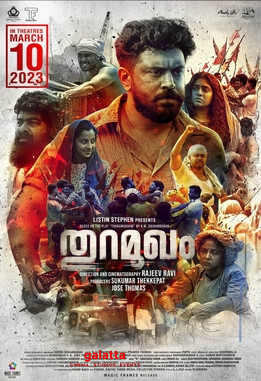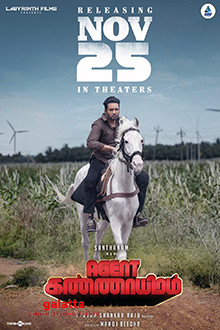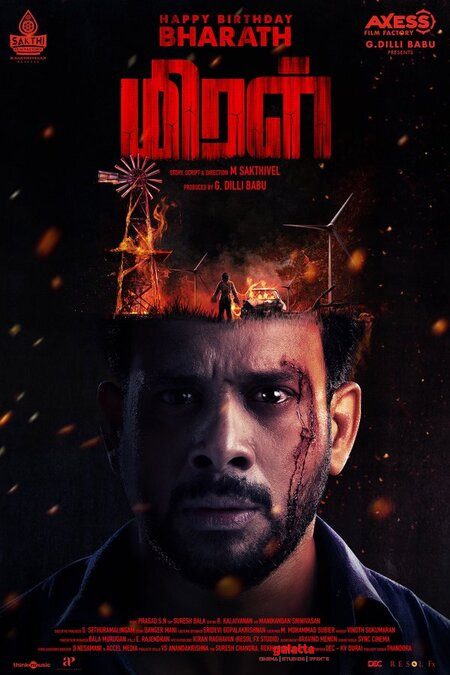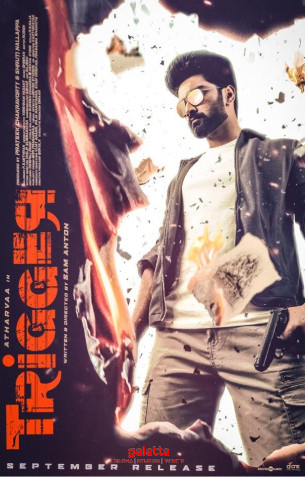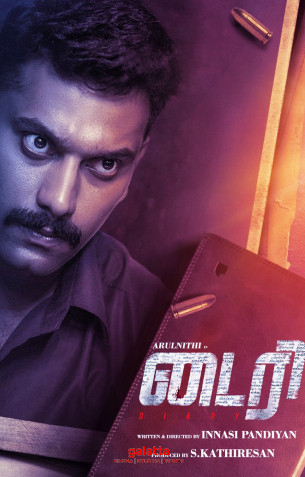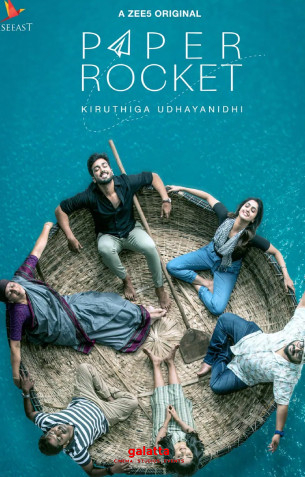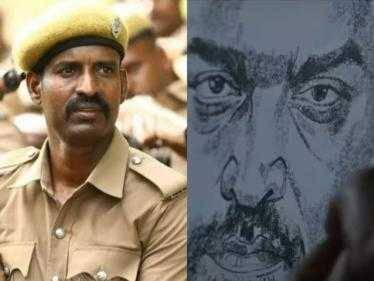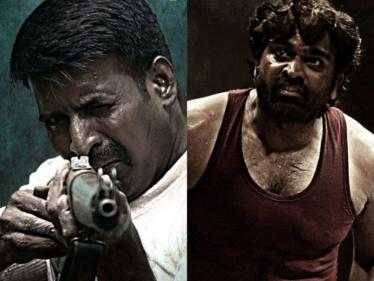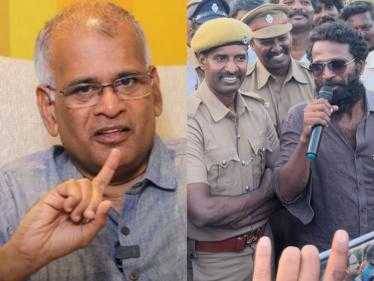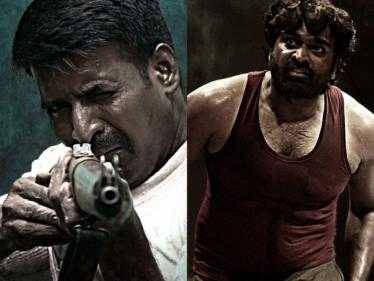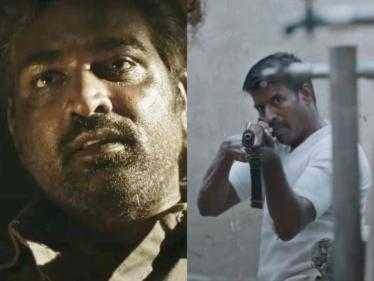Viduthalai Part 1 Movie Cast & Crew
Viduthalai - Part 1 is set in 1987, and it is based, loosely, on a Jeyamohan short story. At heart, it's an underdog story. The big name in the cast is Vijay Sethupathi (he does a kind of cameo appearance here, and he will be seen more in Part 2), but this is about the arc of the Soori character, a newbie cop named Kumaresan. Vetrimaaran's greatest triumph is seeing in Soori qualities that no one else saw for the 25-odd years the actor has been around. Vetrimaaran sees the goodness and the innocence and the helplessness and the lack of confidence and the desperation and also the internal moral code the actor is able to project. (Kumaresan, for instance, is not someone who will say "sorry" to a superior just so that he can escape punishment, especially if he knows he has done no wrong.) Soori repays Vetrimaaran's instincts by internalising the director’s writing and delivering an utterly convincing performance. Most times, he doesn't seem to be "acting". He just is. His Kumaresan becomes our eyes and ears, because like him (initially), we are outsiders to this world.
So, what is this world? It is a specific place set in the hillsides of southern Tamil Nadu, but it is also a microcosm of the State that encourages "development" and invites mega-corporations to invest in, say, mining infrastructure. There is a complex argument to be made about whether all development is wrong, but the film does not get into it. Viduthalai - Part 1 operates at a fairly simplistic good-versus-bad level. The "bad guys" are the cops, the special task force set up to capture the leaders of a rebel group named Makkal Padai. These are the good guys. They resort to violent means to push back against the government's development initiatives, because of the cost to the local people and the local ecosystem. Depending on who's doing the talking, the members of Makkal Padai are Naxalites or revolutionaries or terrorists. Note the name of the outfit's leader, the Vijay Sethupathi character. It's Perumal, which means God. No one has seen him, and yet he's everywhere, orchestrating everything. The name fits.
How does an outsider become an insider? How does an innocent gain wisdom? How does someone learn to separate State-disseminated propaganda and media-disseminated loose talk from the truth? In other words, how do you distinguish the real "good guys" from the real "bad guys"? And finally, how does a man who fears a gun at the beginning end up holding one? That is: how does a "coward" become a "hero"? These are the questions driving Viduthalai – and the way they shape Kumaresan is the overall arc of the coming-of-age narrative. His voiceover-letters to his mother clue us in to his state of mind, and almost everyone around him – both good and evil, pure and corrupt – becomes a kind of teacher, or "vaathiyar". (This, by the way, is also a term of respect used for the Vijay Sethupathi character.)
Even Kumaresan's love interest (Paapa, played by Bhavani Sre) teaches him something – that you should trust people due to what they are on the inside and not due to the external clothes or uniforms they wear. This moment of realisation (for Kumaresan) is just wonderful, and it made me wish the rest of the love track had been written along these lines. The way Paapa and Kumaresan meet is superb. It’s accidental. It shows us the kind of cruel world this is, both in terms of animals and (subsequently) humans. But the rest of this love angle – propped up by two redundant Ilayaraja numbers – doesn't dig as deep. The song stretches feel like they could be in any movie, any love story. We don't really feel the intensity of this relationship, which is crucial to the climax that intercuts scenes of Paapa with scenes of Kumaresan.
Viduthalai is a worthy, watchable movie. Vetrimaaran, at this point, is incapable of making anything that isn't interesting at some level. But given the gritty subject matter, I found it impossible not to keep thinking back to Visaranai, which is a truly great movie. Why doesn't Viduthalai rise to that level of greatness? One, the film feels too tightly edited. The scenes don't breathe. For instance, there is a bit where a teenage Schedule Caste girl is killed. Its ripples aren't felt to the extent that the scene-description suggests. Except the top brass and Kumaresan, the policemen are a fairly anonymous bunch. And even when we get a jaw-dropping technical achievement, like the long, single-shot coverage of a train accident, we marvel more at the shot than we feel about the victims of the tragedy. (The film's finest bit of cinematography is a drone shot that begins with two men in a forest. The camera keeps rising until the two men become insignificant, like insects, when compared to the vastness of Nature – the very Nature that someone like Perumal is trying to save from mankind's greed.)
And because of this rushed feeling, we do not get socio-political points that we do not already know about, points that could make us look anew at this story about cops who will resort to the most horrible means to get to their goal (i.e. the capture of Perumal). Gautham Vasudev Menon appears in a crisply written part as a senior cop (Rajiv Menon plays his superior, Chethan plays his subordinate). Where does he turn from a sympathetic man who seems to resent the stripping of women to someone who pulls out fingernails to extract information? These little graphs could have added more meat to the proceedings. The breathless pace also means that we do not get the sustained atmosphere of dread that held Visaranai together. (We feared and felt for those innocents in a way we never feel or fear for Kumaresan.) Viduthalai is more like Asuran. It is a simple (and generic) mainstream movie, with a thin storyline, but unlike Asuran, the emotional highs are missing.
Ilayaraja's score further defangs the proceedings by sentimentalising and underlining every emotion. During the scene of that train accident, for instance, the music keeps fighting with the ambient sounds (both dialogue and "atmosphere") for attention. A Vada Chennai or an Aadukalam can use – and be enhanced – by this sentimentalisation, by these songs. But the Visaranai/Viduthalai zone is different – and I find it strange when our filmmakers say they send films to festivals without much of a score but add it for local release "for the sake of the audience". (This has happened with Kaaka Muttai, too, and with many other "new-age" films.) If we are going to make movies that change the way the audiences (our audiences) perceive cinema, should we not also trust these audiences to accept these films without emotional spoon-feeding? As an aside, in my PS-1 review, I said: "Could the AR Rahman songs have been axed completely to make way for more narrative?" It’s a rhetorical point. I do understand the role music plays in the commerce of cinema, but when you have a sprawling story with several characters, wouldn't you rather spend more time on fleshing out the story? It's a matter of personal taste, of course, but I also think it's a matter worth thinking about.
Then again, this "mainstreaming" may be the thing that helps Viduthalai reach a bigger audience than Visaranai did. Given that this is primarily the coming-of-age story of Kumaresan, I wished we had been inside his head a lot more. But then, the entirety of Part 1 is a lead-up to Part 2, and in the version I watched a few days before release, there's an epilogue where every single moment, every single line is a firecracker. Another interesting factoid about Viduthalai. Until now, the two-parter films we have had in India (or maybe even the world) have all been in the fantasy / history zone. This may be the first time a socio-political movie is being served in two installments. We won't be able to gauge the full impact of Viduthalai until we see the second part, but for now, what we have is a well-intentioned film that feels like it needed to cut deeper, far deeper.
